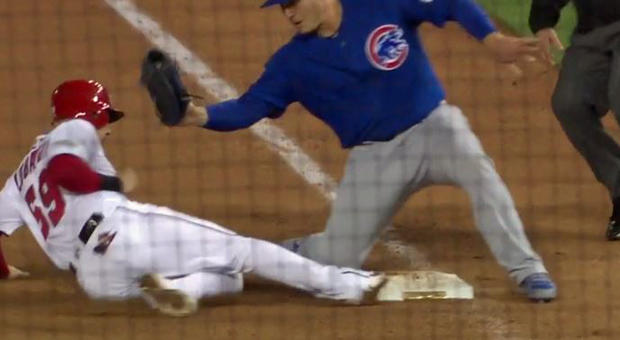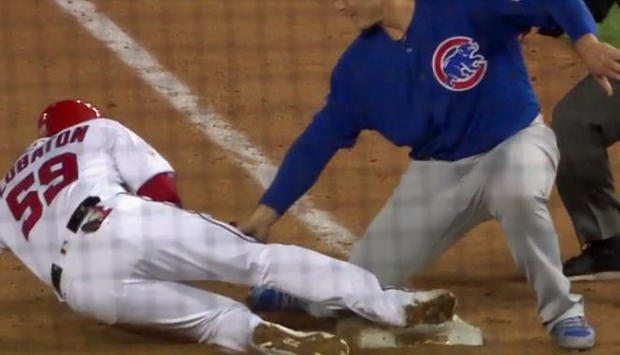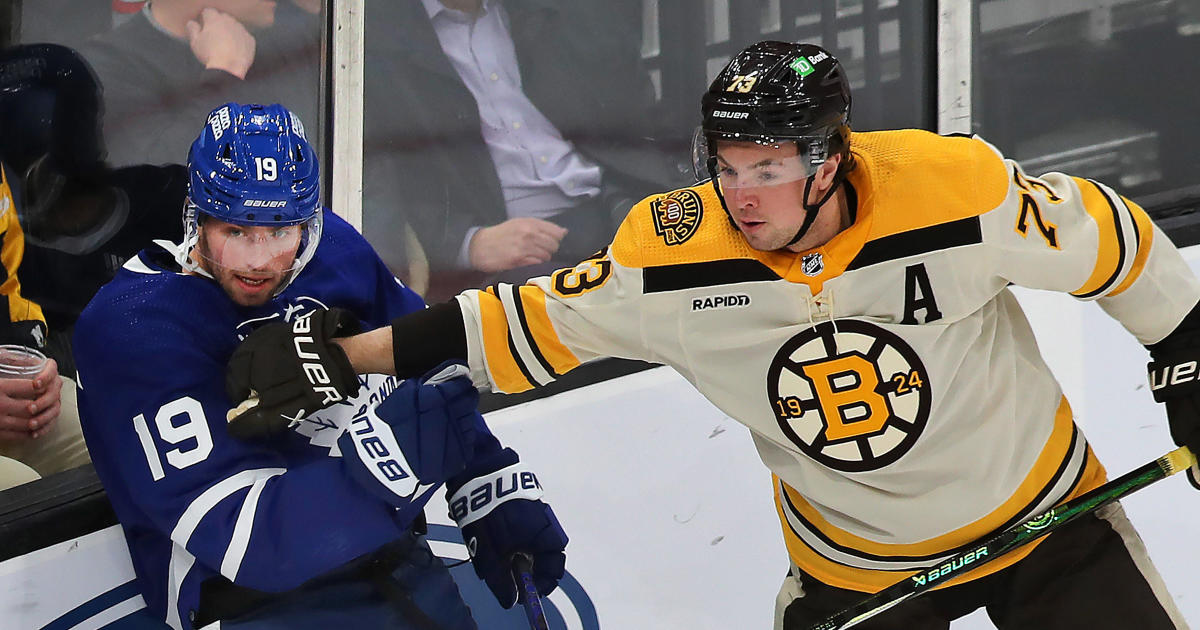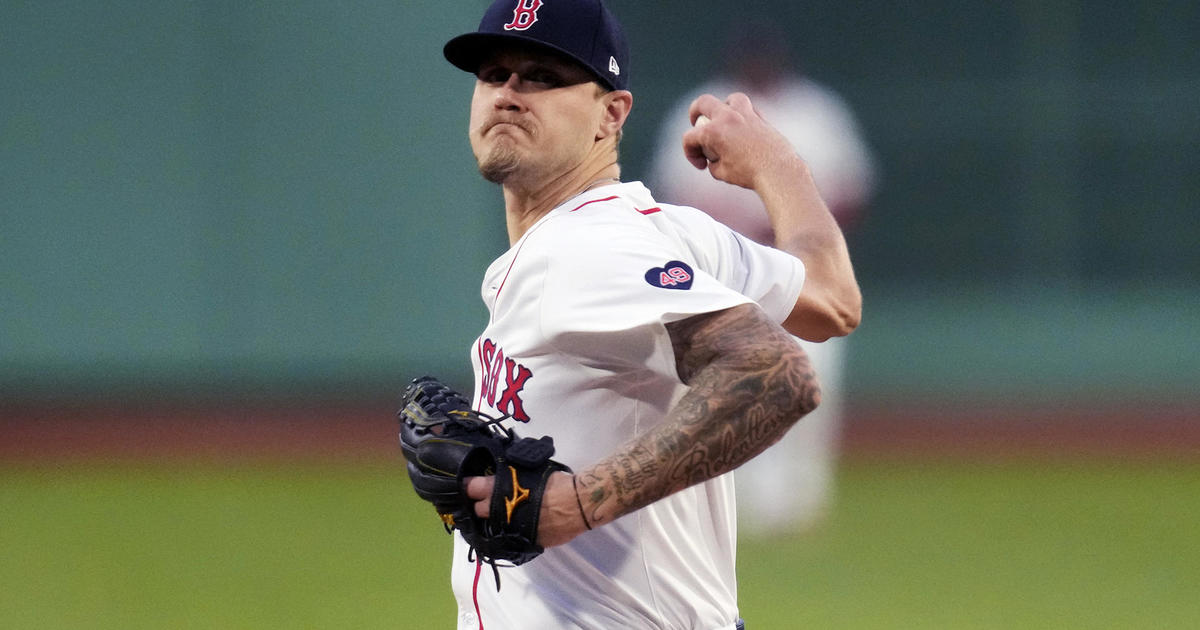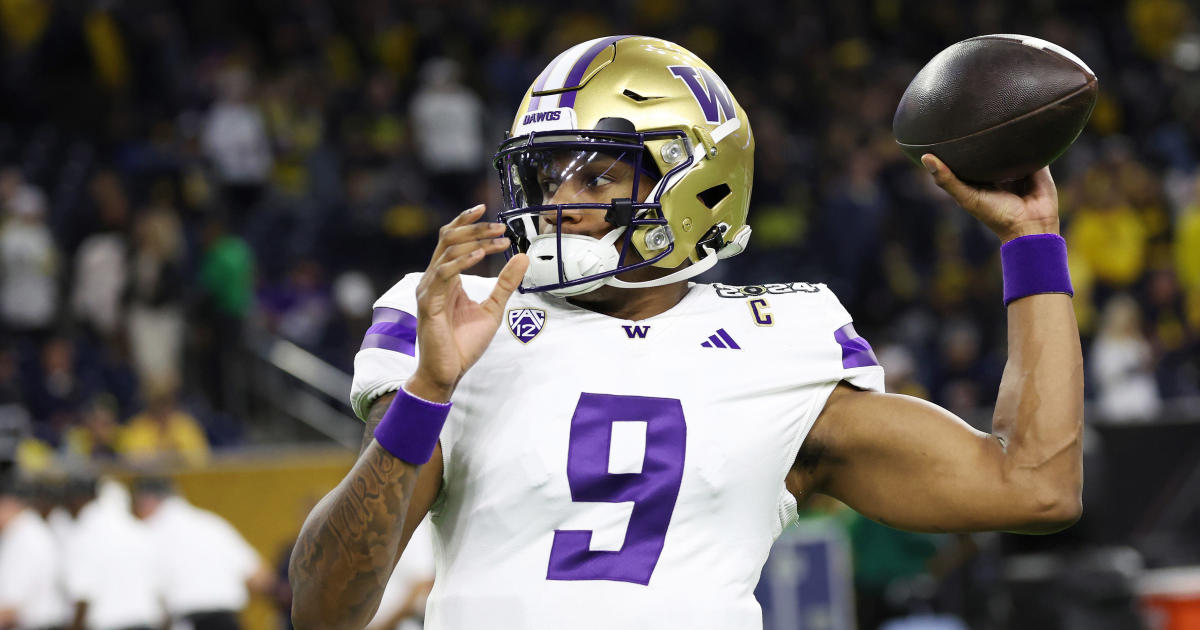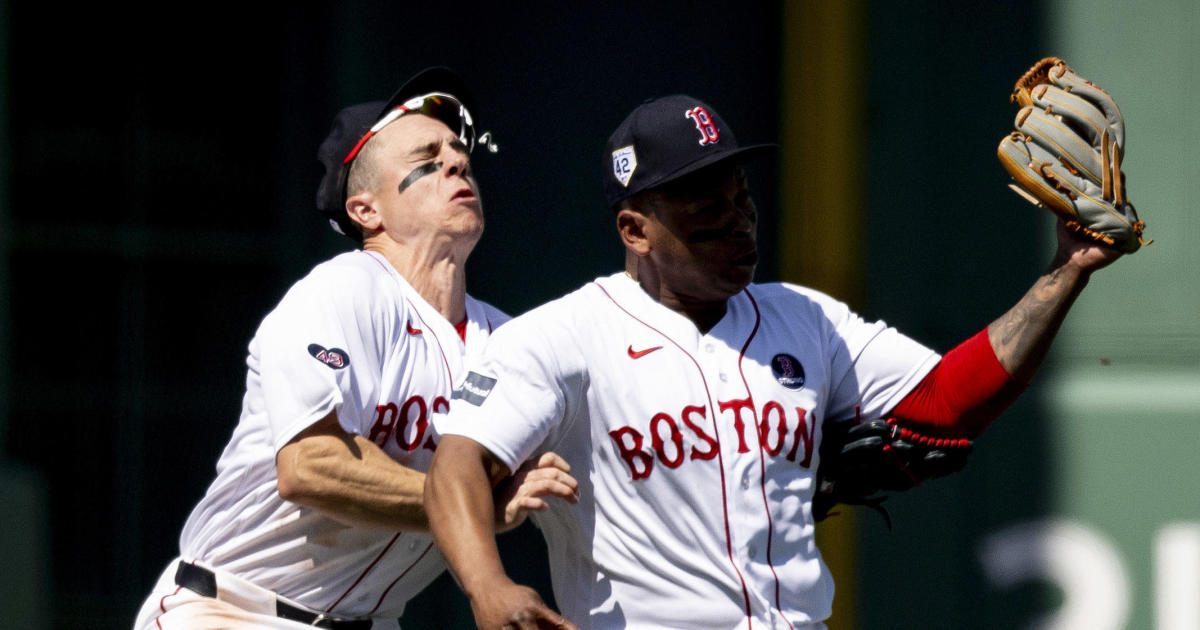Hurley: Replay Review Removing Spirit Of Playoff Baseball
By Michael Hurley, CBS Boston
BOSTON (CBS) -- For as long as people have followed sports, there's been nothing quite like playoff baseball. Still to this day, despite all the cultural advancements in technology and entertainment and despite all the other sports taking place simultaneously, playoff baseball remains among the very best that sports has to offer.
But in recent years, thanks to replay review, it has been changing. And not for the better.
That reality was on display on two occasions during Thursday night's dramatic Game 5 between the Cubs and Nationals -- a game that perhaps stretched a little long at four hours and 37 minutes but nevertheless provided enough action and drama to make it all worth it.
By the end, the Cubs earned a 9-8 victory -- and they did earn it. That should be made clear before proceeding. But there were two moments that spoiled a lot of the fun.
The first came in the top of the seventh. The Cubs, holding an 8-6 lead, had runners on the corners with one out. Kris Bryant hit a sharp grounder to third base. Anthony Rendon fielded it cleanly and threw to second base, where Daniel Murphy tried to turn a double play while Jon Jay came sliding into the second base bag. Bryant beat the throw at first by a step, which allowed the ninth run to cross the plate. That ended up being the winning run.
It was a standard baseball play, one we've seen thousands upon thousands of times. Yet given the new-ish rules (instituted in 2016) on slide interference, the Nationals saw it fit to challenge Jay's slide. Jay didn't violate the new-ish rule (he slid before the base, was within reach of the base and didn't change his pathway) and the replay review ultimately ruled that he didn't break the rule. Bryant was ruled safe at first, and the run was allowed to score.
To some, this may be an all's well that ends well situation, but frankly, a hard slide into second base to break up a double play is a fundamental aspect of the game. MLB overreacted to Chase Utley's dirty takeout of Ruben Tejada in the 2015 playoffs, and as a result we've got a deciding Game 5 of an NLDS being stopped to review a routine play. It just shouldn't be happening.
The other example on Thursday night was much more impactful. It came in the bottom of the eighth, when the Nationals trailed by just a run following a two-out RBI single by Michael Taylor. With Taylor on second, Jose Lobaton on first and Trea Turner at the plate, Cubs catcher Willson Contreras gloved a low fastball from Wade Davis before quickly popping up and firing a snap throw to first base.
Lobaton slid feet-first back into the bag, well before Anthony Rizzo applied a slap tag. He was ruled safe. For as long as we've all seen baseball in our lifetimes, Lobaton was obviously safe:
Yet the Cubs challenged, and super slow-motion, high-definition replays showed that the momentum of Lobaton's slide caused his leg to lift a centimeter or two off the bag while the tag was still being applied:
Technically, Lobaton was out, so the call was reversed. The Nationals' rally was over, and they'd never get to plate that tying run. Would they have scored if Turner had been allowed to continue his at-bat? You can't say one way or another with confidence.
Yet you can't help but feel like the Nationals got robbed. And as mere spectators to a great event, we were too.
Look, baseball badly needed replay. Between Phil Cuzzi going blind in the Bronx and Jim Joyce ruining a perfect game and Tim Welke being an affront to the sport of baseball, there were too many obvious calls being blown in baseball. A system was needed to fix these obvious mistakes -- ones where umpires could look at a review and know within 10 seconds that the call had been missed. Mostly everyone in baseball wanted that.
But this? A frame-by-frame examination of a spike's contact with a base? A replay that took nearly two full minutes of inspection of every last millimeter on the field? On a play where the runner beat the throw with ease?
I just don't think that's what anybody wanted.
It's popped up innumerable times over the course of the past four seasons (replay review was expanded in 2014) and has inspired many objectors to voice their displeasure with the system. But this may have been the most significant play overturned. (What looked like a failed replay review in last year's playoffs also benefited the Cubs.)
What's striking, too, is that nobody on the Cubs felt wronged by the initial call. Rizzo nonchalantly walked toward the mound, because he didn't think Lobaton was out. Contreras asked the home plate umpire for a new ball for the next pitch. First base umpire Will Little didn't do anything wrong; no human could have possibly seen the glint of light that shone between Lobaton's leg and the bag. The world was ready for the 2-1 pitch.
But when someone on the Cubs' staff saw the replay, Joe Maddon called for the challenge. He had nothing to lose and a whole lot to gain.
It's just lousy, and it's not at all what competitive sports are supposed to be about.
It's not a problem that's necessarily unique to baseball -- the NFL can't define a catch, and the NHL saw its Stanley Cup Final reshaped because a skate blade might have been a millimeter off the ice -- but it's a problem that belongs least in baseball. On plays where it's difficult for umpires to see fair or foul or whether a ball clears a fence, replay is sensible. But on plays where baseball happens? That's baseball. Leave it be.
The Cubs didn't do anything wrong here. They used what was available to them to help win a critical baseball game. And the Nationals weren't belly-aching about the call after the game, either.
"It's part of the rules right now," Lobaton said. "We have to take it."
For now, yes. But MLB should use this moment as an opportunity to limit the number of plays that are subject to replay review. In a case like this, it didn't work to correct an obvious mistake. It only worked to give a rather lifeless ending to what had been to that point a spectacularly dramatic inning of baseball.
You can email Michael Hurley or find him on Twitter @michaelFhurley.
